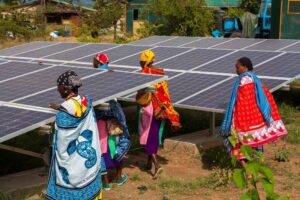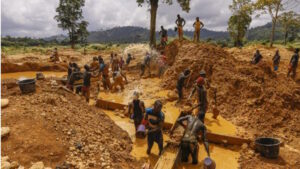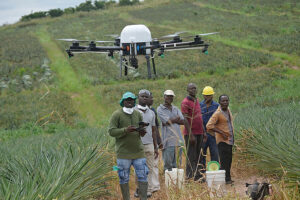As we mark World Environment Day today, the spotlight is on Africa’s environmental landscape and the evolving role of technology within it. The continent’s diverse ecosystems are increasingly evolving from the vast savannas to the bustling cities.
In recent years, Africa has emerged as a hotbed of technological innovation, with startups and entrepreneurs driving change across various sectors. From fintech to agritech, the continent is experiencing a digital revolution reshaping economies and societies.
However, amid this rapid progress, the environmental implications of technology cannot be overlooked. As we delve into the impact of technology on Africa’s environment, it’s essential to recognise both the opportunities and challenges that come with this digital transformation to sustainable development.
Read also: Liberia expands solar farm, hydropower in new energy Initiative
Technology’s impact on fostering a sustainable Africa

Africa is witnessing a remarkable shift towards renewable energy sources, partly driven by technological advancements. Countries like Kenya and South Africa are embracing solar and wind energy to reduce reliance on fossil fuels and address energy poverty. These environmentally friendly and economically beneficial initiatives create jobs and boost local economies.
In agriculture, technology is revolutionising traditional practices. Precision farming techniques, aided by drones and satellite imagery, enable farmers to optimise crop yields while minimising water and chemical usage. This not only improves food security but also reduces the environmental impact of farming, which is crucial in the face of climate change.
Dark Side of Technology in Africa

On the flip side, Africa is grappling with the dark side of technology: electronic waste. As the continent becomes a dumping ground for old electronics worldwide, improper disposal leads to pollution and health hazards. Effective e-waste management is essential to mitigate these risks and safeguard Africa’s environment and health.

The demand for rare earth minerals in electronics has increased African mining activity. However, this comes at a cost. Mining often leads to deforestation, habitat destruction, and water pollution. Sustainable mining practices, including land rehabilitation and responsible waste management, are crucial to minimise these impacts and preserve Africa’s natural resources.
Read also: Top Solar backpacks for outdoor excursions
As Africa embraces technological advancements, finding the balance between progress and environmental conservation is critical. Investing in green technologies, promoting recycling, and enforcing responsible waste management practices are critical for a sustainable future.
The impact of technology on Africa’s environment is multifaceted, offering promise and peril. While renewable energy and precision agriculture hold great potential for sustainable development, e-waste and unsustainable mining practices pose significant challenges.
As we commemorate World Environment Day, it’s a reminder that our choices today will shape the environmental legacy we leave for future generations. By leveraging technology responsibly and embracing sustainable practices, Africa can chart a path towards a greener and more prosperous future.
Happy World Environment Day, begin to consciously live a sustainable life and remember our actions and inactions can positively or negatively affect Africa.

















